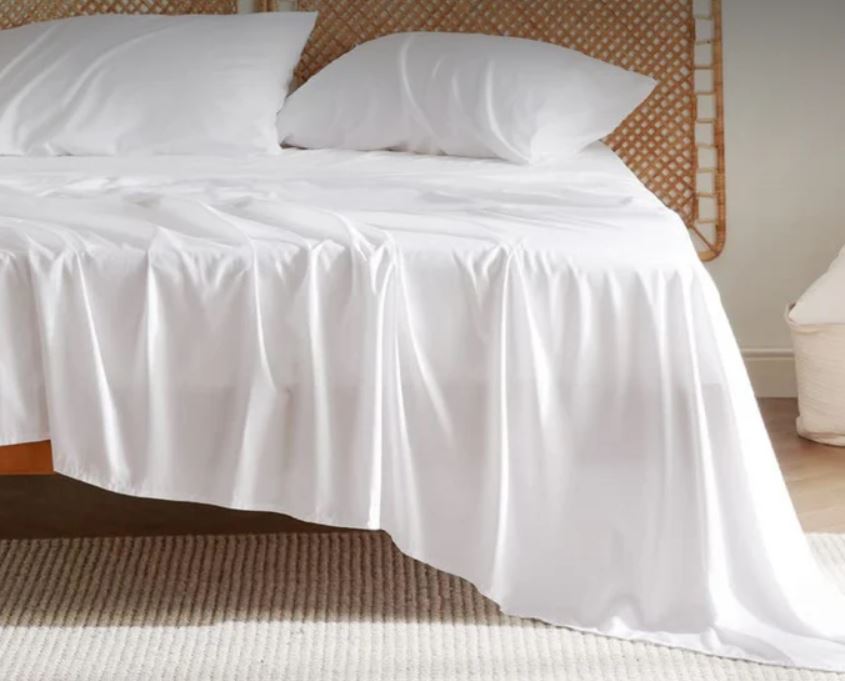In recent years, organic bamboo sheets have taken the world of bedding by storm. Known for their luxurious feel, sustainability, and health benefits, these sheets have become a popular choice for eco-conscious consumers and those seeking a better night's sleep. In this guide, we'll explore the numerous advantages of organic bamboo sheets, how they compare to other types of bedding, and tips on choosing the best set for your needs.
What Are Organic Bamboo Sheets?
Organic bamboo sheets are made from bamboo fibers that have been grown and processed without the use of harmful chemicals or pesticides. The bamboo plant itself is a sustainable resource, known for its rapid growth and minimal need for water. When processed into fabric, bamboo creates a material that is incredibly soft, breathable, and durable.
Benefits of Organic Bamboo Sheets
1. Eco-Friendly and Sustainable
One of the primary reasons people choose organic bamboo sheets is their environmental benefits. Bamboo is one of the fastest-growing plants in the world, capable of reaching maturity in just three to five years. It also requires far less water than cotton and does not need chemical fertilizers or pesticides. This makes bamboo a highly sustainable resource, with a significantly lower environmental footprint compared to conventional cotton.
2. Softness and Comfort
Organic bamboo sheets are renowned for their silky-smooth texture, often compared to cashmere or silk. The natural fibers are softer than many other types of bedding materials, providing a luxurious feel that enhances comfort and promotes restful sleep. The softness of bamboo sheets also tends to increase with each wash, making them an enduring favorite.
3. Breathability and Temperature Regulation
Bamboo fibers are highly breathable, allowing for excellent air circulation and moisture-wicking properties. This makes bamboo sheets ideal for regulating body temperature throughout the night, keeping you cool in the summer and warm in the winter. The breathability of bamboo fabric also helps reduce night sweats and overheating, contributing to a more comfortable and uninterrupted sleep.
4. Hypoallergenic and Antibacterial
Organic bamboo sheets are naturally hypoallergenic and resistant to dust mites and other allergens. Additionally, bamboo fibers possess antibacterial properties, helping to keep your sheets fresher for longer and reducing the need for frequent washing.
5. Durability and Longevity
Bamboo sheets are known for their strength and durability. The long fibers of the bamboo plant create a fabric that is less prone to tearing and pilling compared to other materials. With proper care, a set of organic bamboo sheets can last for many years, maintaining their softness and quality over time.
Comparing Bamboo Sheets to Other Bedding Materials
When choosing bedding, it's essential to consider how bamboo sheets stack up against other popular materials like cotton, linen, and synthetic fabrics.
1. Bamboo vs. Cotton
While both bamboo and cotton sheets have their merits, bamboo often comes out ahead in several key areas. Bamboo sheets are generally softer and more breathable than cotton, making them a better choice for hot sleepers. Additionally, bamboo's sustainability gives it an edge over conventional cotton, which requires more water and chemicals to grow and process.
2. Bamboo vs. Linen
However, linen can feel rougher to the touch and requires more maintenance to keep it looking and feeling its best. Bamboo sheets, on the other hand, offer a smoother texture and are easier to care for, making them a more convenient option for many people.
3. Bamboo vs. Synthetic Fabrics
Synthetic fabrics like polyester are often less expensive than natural options, but they come with significant drawbacks. These materials are less breathable, can trap heat, and are not as eco-friendly. Bamboo sheets, while more costly upfront, offer superior comfort, breathability, and environmental benefits.
How to Choose the Best Organic Bamboo Sheets
When shopping for organic bamboo sheets, there are several factors to consider to ensure you get the best quality and value for your money.
1. Certifications
Look for certifications that guarantee the organic and sustainable nature of the bamboo sheets. Certifications like OEKO-TEX Standard 100, GOTS (Global Organic Textile Standard), and USDA Organic can provide assurance that the sheets meet high environmental and safety standards.
2. Weave Type
The weave of the fabric affects the feel and durability of the sheets. Common weaves for bamboo sheets include sateen and twill. Choose the weave that best suits your preferences for comfort and longevity.
3. Thread Count
While thread count is often used to gauge the quality of sheets, it is less critical for bamboo sheets than for cotton. Bamboo sheets typically have a lower thread count but can still be incredibly soft and durable. Aim for a thread count of around 300-400 for optimal softness and strength.
4. Price
Organic bamboo sheets can be more expensive than conventional options, but they are worth the investment for their quality and sustainability. Compare prices from different brands and consider factors like weave, thread count, and certifications to find a set that offers the best value.
5. Care Instructions
Check the care instructions before purchasing to ensure the sheets are easy to maintain. Most bamboo sheets can be machine washed and dried, but some may require more delicate care. Proper maintenance will help prolong the life and softness of your bamboo sheets.
Conclusion
Organic bamboo sheets offer a luxurious, eco-friendly, and health-conscious bedding option that can enhance your sleep experience. Their softness, breathability, and sustainability make them a standout choice in the world of bedding. By considering factors like certifications, weave type, thread count, and care instructions, you can find the perfect set of bamboo sheets to suit your needs and enjoy the many benefits they provide. Investing in organic bamboo sheets is not only a step towards better sleep but also a commitment to a more sustainable and healthy lifestyle.





Comments